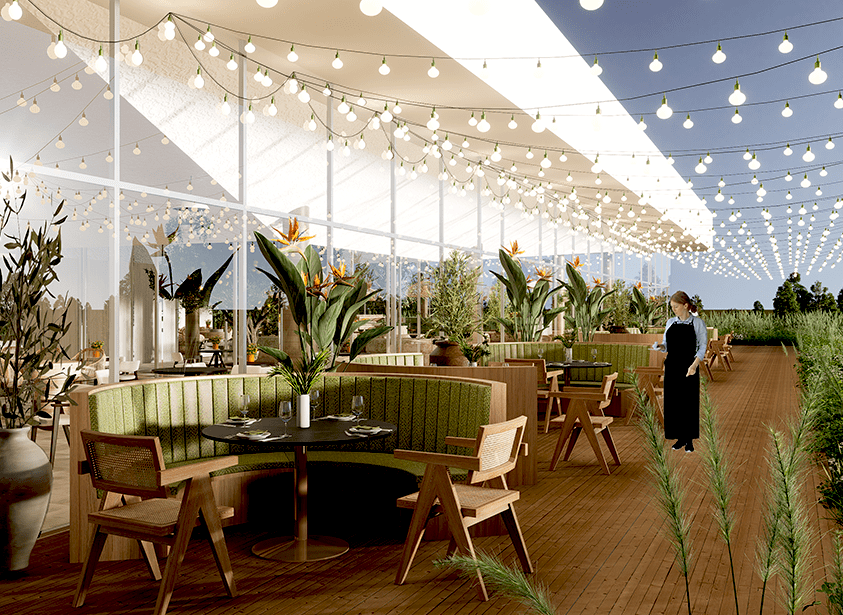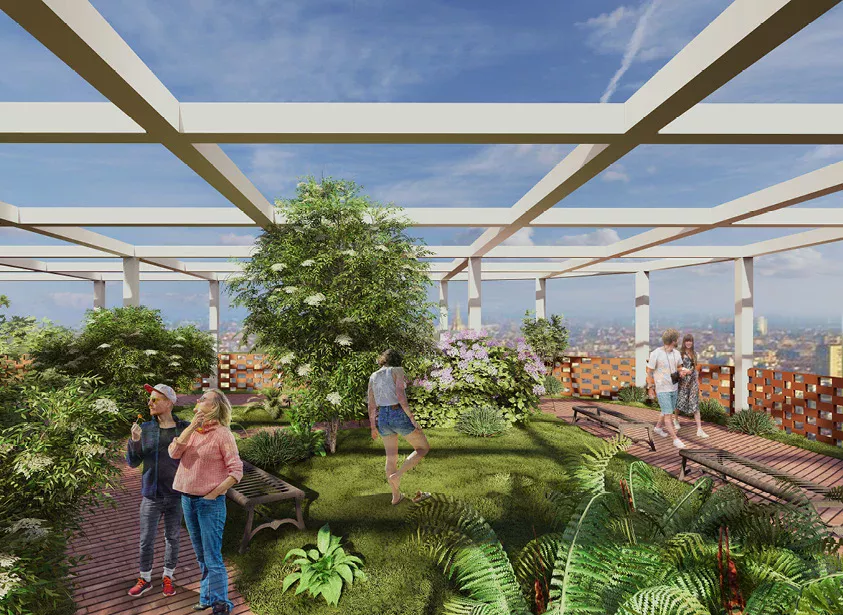Semester inUrban Vision & Architectural Design

The Semester Course provides tools for design and strategy analysis to create innovative projects in the field of Architectural Design.
Duration: 16 Weeks | Language: English | Start: February, September, November
Are you willing to deepen your design knowledge in few weeks with a high-standard programme?
This approx. 16-week journey will lead you to join selected theoretical courses with professionals, active learning sessions and workshops working in international and cross disciplinary teams and taking advantage of many networking occasions.
Get a taste of the unique Domus Academy experience.
The Semester Course in Urban Vision & Architectural Design will lead you to join selected theoretical courses with professionals, active learning sessions and workshops working in international and cross disciplinary teams and taking advantage of many networking occasions.
After successfully completing the Semester Course, eligible students will be recognised 24 CFA/ECTS and will obtain a Certificate of Completion.
The 24 CFA/ECTS credits will be delivered upon successful completion of the course to students enrolled in the accredited path only; they will be used in case of progression to a Master’s Programme inside Domus Academy and might be validated at the option of the chosen University of reference in case of a transfer’s request to a postgraduate programme.
Participants are expected to have a first level academic degree or a previous professional experience in the related field of study.
IELTS 5.0 certificate or equivalent is required.
All courses are taught in English. A high level of proficiency in the English language is required.
The Semester Course structure is organized in two modules.
Each module includes one theoretical course and one workshop in the specific area of interest.
ARCHITECTURAL REPRESENTATION
The Architectural Representation course focuses on the analysis of multiple case studies for digital visualization in architecture. Through different visual representation exercises students are challenged to design a small object related to architectural design.
DESIGN FORMATION
The course explores different design strategies through the analysis of iconic projects in order to form a design critical thought and a visual communication strategy.
ARCHITECTURAL DESIGN
The Architectural Design workshop focuses on designing integrated architectures through critical research readings and context analysis.
URBAN & LANDSCAPE DESIGN
The Urban & Landscape Design workshop focuses on recognizing, reading and analysing a large frame of the city/ territory in order to understand how to design an innovative and a consistent urban project.
The Semester’s programme involves the following costs:
Semester Course Tuition
€ 9.500
- Austria
- Belgium
- Bulgaria
- Croatia
- Cyprus
- Czech Republic
- Denmark
- Estonia
- Finland
- France
- Germany
- Greece
- Hungary
- Iceland
- Ireland
- Italy
- Latvia
- Liechtenstein
- Lithuania
- Luxembourg
- Malta
- Norway
- Holland
- Poland
- Portugal
- Romania
- Slovakia
- Slovenia
- Spain
- Sweden
- Switzerland

Tim Power is an architect, designer and researcher. He is the founder of Tim Power Architects, an architecture and design practice founded in 2007, aimed to promote coexistence between society and the environment.
Significant professional experiences include working in the studios of Italian Architects Ettore Sottsass and Superstudio (Cristiano Toraldo di Francia), collaborations with numerous Japanese Architects and designers including Nendo, Sou Fujimoto and Jun Aoki, and competition with well-known architects and landscape architects including Morphosis, SWA and West 8.
Architecure projects include both public and private clients and range from social housing buildings to work place environments.
Interiors have been realised for clients which include Louis Vuitton, Muji, Lexus, and Apple.
Projects in the field of Furniture and Lighting have been realised for manufacturers that include FontanaArte, Oluce, Cassina Interdecor.
His contributions have been presented in both the Biennale of Architecture and the Biennale of Art in Venice. He has taught thesis level design courses in many prestigious universities and lectured in conferences, seminar worldwide.
Academically, his research focus is on design as a responsible act, with specific interest in Environmental, Cultural and Social issues, and the creative hybridization of local and foreign cultural practices.
This research looks at contemporary and environmentally curative strategies, investigating how these strategies, when applied to urban-scapes, can invigorate urban regeneration, social space, stimulate develop economic enterprise and frame cultural situations with care and optimism.









